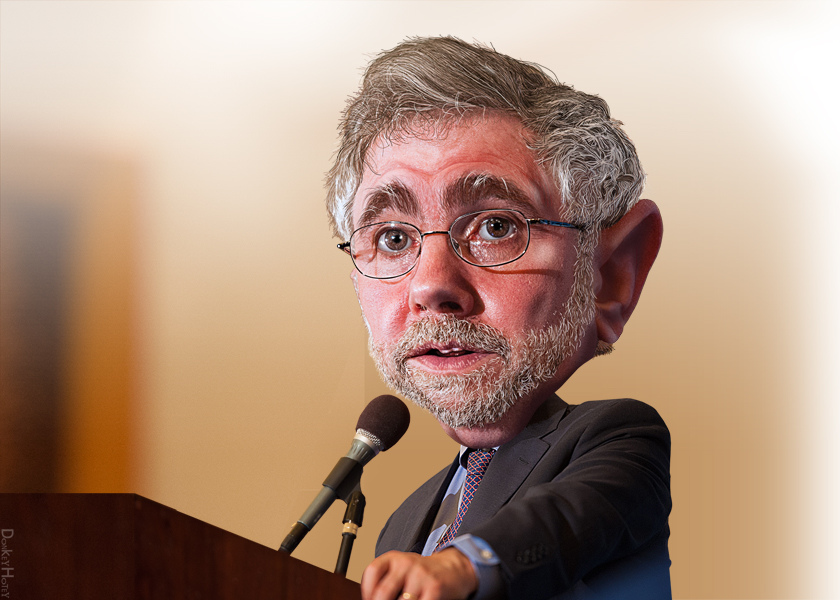Why You Need to Stay Connected to the Soil

Remember the song “He’s Got the Whole World in His Hands”?
It progresses from “He’s got the little bitty baby” to “He’s got you and me, brother”… but the refrain is “He’s got the whole world in His hands.”
While it’s a religious song, it speaks to the theme I’d like to explore: how urban life tends toward hubris.
In case you think I’m heading toward a diatribe against cities… no, that is not the case. Cities give us enough critical mass to have theaters and museums and aquariums and zoos. That’s pretty cool.
As with anything, though, cities can scale beyond functionality. They also have built-in social and spiritual dangers.
The nuances are not just urban versus rural. They also include educated versus peasants, white collar versus blue collar and red state versus blue state.
My thesis is simply that the further a person is removed from practical immersion in ecological dependency, the less humility and common sense they demonstrate.
Practically Speaking
That’s a bold statement inasmuch as the environmental movement is dominated not by conservatives but by liberals (dare we say socialists?). But notice I said “practical” above.
What is practical?
It’s actually interacting with real production, like farming.
This is a real tension for me because for the most part, people who pay me to come and give speeches are on the liberal end of the political spectrum. We would generally vote for opposite candidates.
On the other hand, my farmer neighbors who douse everything with chemicals, build factory farm houses, and think I’m a bioterrorist or at least nutty tend to vote conservative, like me.
What’s going on here?
While I vehemently disagree with modern farming orthodoxy, in general I find farming and rural communities embrace low taxes, smaller government, property sanctity, life sanctity, and personal freedom and responsibility.
My urban greenie foodie fans, however, want more government intervention, higher taxes, late-term abortion and publicly dispensed needles for drug addicts.
The Virtue of Peasants
I was in Spain recently at a large sustainable food and agriculture conference. Afterward I enjoyed a special dinner with the kingpins of the shindig.
For two days these folks honored farmers and extolled the virtues of agrarian wisdom, heritage and cultural integrity. Peasants received accolades; kings, condemnation.
The conversation then turned to American politics and universal excoriation of President Trump.
I was the only American at the 15-person table. I let the tirade go on for a few minutes and then offered something that shut down the conversation like water on a fire.
I pointed out that for two days we’d extolled the virtues of peasants, of rural people as the repository of cultural heritage.
Then I asked them if they had heard about blue states and red states. Most had. Red states – the conservative ones that support Trump – are predominantly rural, agrarian and working class. The blue states that despise Trump tend to be urban, white collar and techno-glitzy.
Then I asked them, “If agrarians are so wise and culturally competent, why do you hypocritically call them stupid politically? Could there be some political wisdom in these peasants?”
In other words, you can’t have it both ways. You can’t say farmers possess a culture’s best wisdom and then say they vote like idiots.
To say I put a damper on the lively conversation would be the understatement of the year. They all looked at me like I was from Pluto and, after a long, pregnant, awkward pause, began talking about compost and multi-speciation again. That was safer.
Part of Something Bigger
That along with many similar experiences have led me to the thesis of this essay. The reason I avidly support children gardeners is not because I want to create a nation of tree huggers. It’s to create adults who understand more about life.
We live in a fantasy world, from video games and Disney to asphalt and concrete. None of that really lives, and none of it gives life. It’s all artificial. Perhaps even hiking the Appalachian Trail is artificial. It’s nature without maintenance.
But putting a seed in the ground, watching it sprout, watching it fruit – or die – is all part of a mystical connection to something bigger than us.
You can’t press a button and get a new tomato plant if it dies like you can get a new car on your racing video game. Being in awe of something bigger, something outside ourselves, feeds our own self-affirmation.
Enjoying the privilege of coming up alongside something bigger than ourselves, as team players, as co-laborers in an unfathomable choreography ultimately gives us importance.
It also humbles us. We don’t have the world at our fingertips. We can’t just replace the wrecked car. We can’t just start over when we’re obliterated.
Life is for all the marbles. The further we move away from our dependency on soil, rain, grass, trees and animals, the less we understand about life.
Fundamentally, policy is about life. How do people behave? How does nature behave? What creates true vibrancy, and what creates stagnation?
I think these lessons are harder to learn when you’re disconnected from interactions with food production and the people who operate in that sphere.
If you live in the city, it may be far more beneficial to flee to a farm for a day than flee to Disney for a day. It helps ground us… helps us appreciate that the whole world is not in our hands.
The biggest philosophical mistake that creates the biggest political mistake is thinking, “I have the world in my hands.”
No…
“He’s got the whole world in His hands.”






